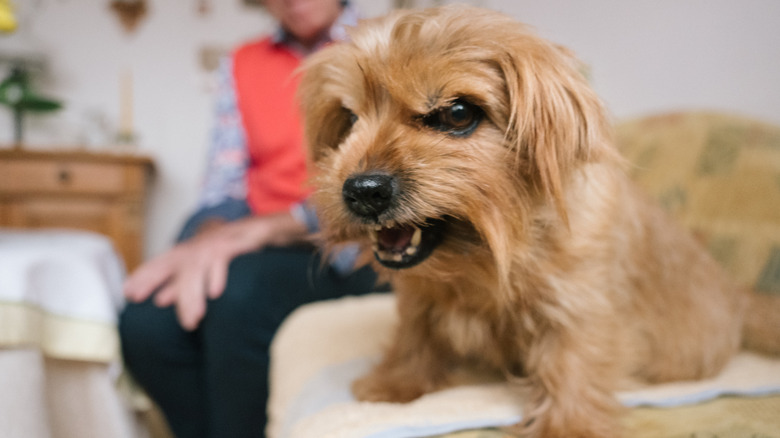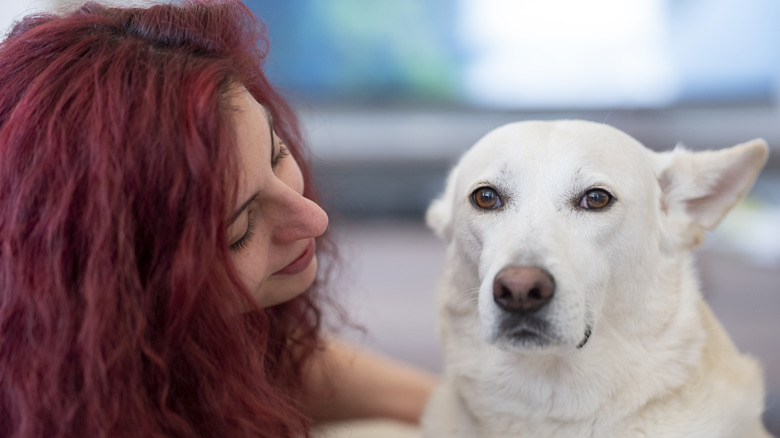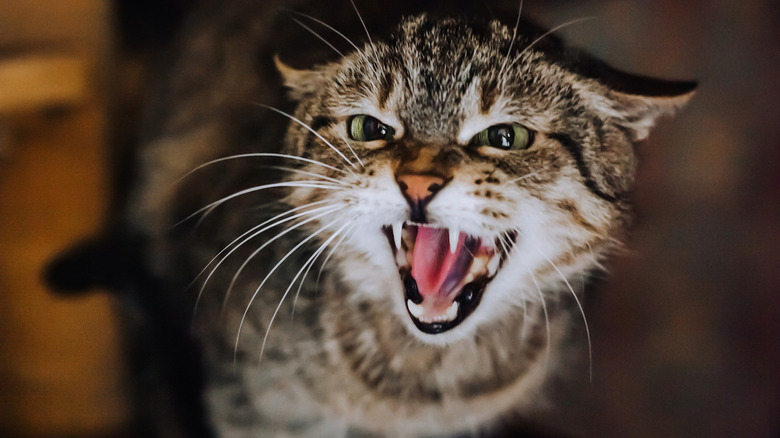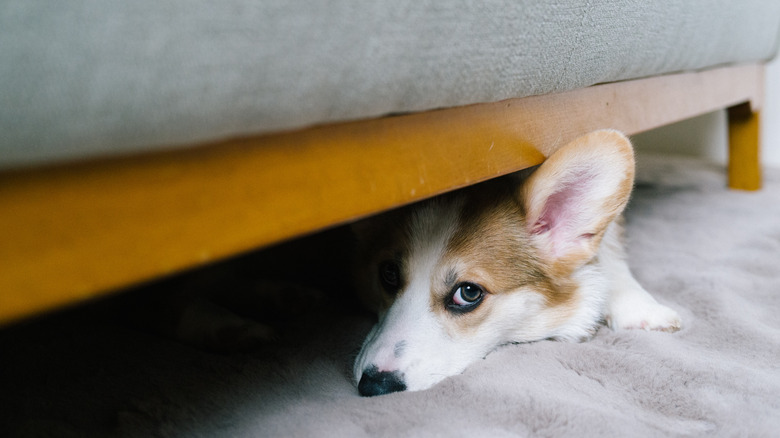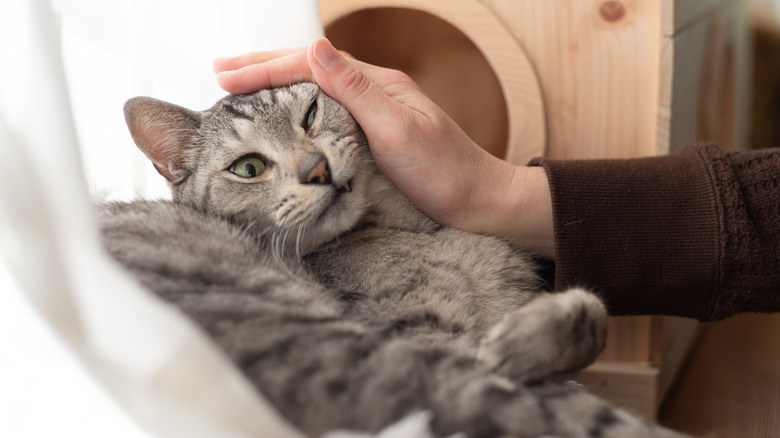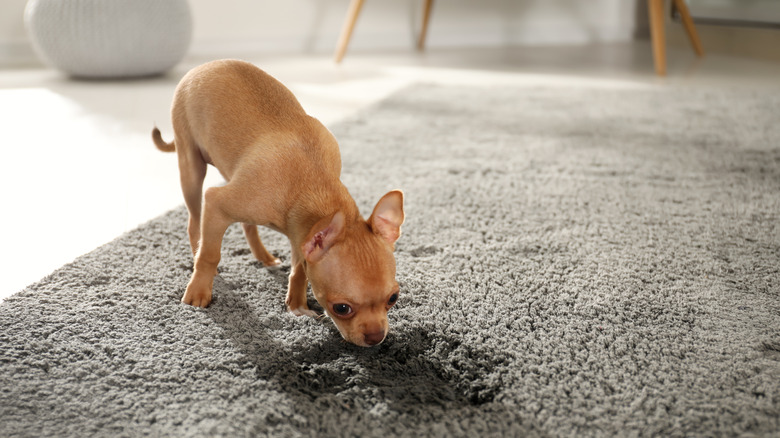Telltale Signs Your Pet Hates Your New Partner
Having a pet is like having a child. They depend on you, they give you purpose and joy, and they love you unconditionally. If you live alone and have no other animals at home, you likely think of that pet as your "baby" and want it to love everyone you love. Unfortunately, some pets dislike or flat-out despise their owners' romantic partners. Yet, how do you know if your feline or canine friend disapproves of your new someone? Some signs are hard to miss, like aggressive behavior and avoiding physical contact, but others are subtler.
The good news is that if your pet hates your significant other, it might just need some more time to warm up to them. Be patient with the process, and don't force any interactions or physical contact. Let your four-legged friend acclimate in its own way at its own pace. It could take days or weeks, but for other pets, it might take longer. The important thing is that you assure your pet that it isn't being replaced. It might be thinking, "I was here first, so back off!" Remind your pet that it still holds a special place in your heart by giving it plenty of love and attention.
Your pet is avoiding eye contact with them
Dogs and cats communicate with their eyes, just as humans do. When they want something from their owners, like their next meal, a walk, or a treat, they'll show you those big, irresistible puppy or kitten eyes. Certain herding breeds, like Australian shepherds, have an eager stare that they use to influence the movements of another animal, or a person. However, if an animal completely avoids eye contact with only one specific person, it's sending a potentially concerning message.
Pets tend to avoid eye contact with their owners after they've done something wrong and are being scolded. However, if there hasn't been any recent misbehavior, that avoidance might point to anxiety, fear, or some other form of discomfort related to your partner. Jealousy could be driving those feelings, or it might stem from a protective instinct; your pet may not be convinced that this new human you've been spending all your time with is trustworthy and won't hurt you.
Your pet is showing signs of aggression toward your partner
Everyone knows that when a dog or cat isn't happy about a person or another animal in its space, it will express its displeasure with a warning snarl. Cats might also throw in a hiss or two. These are all signs of aggression that pets use to let a person know to back off or stop what they're doing. In the case of your special someone, your pet might make these vocalizations when you hug or share a kiss. Some pets are known to show aggression if a person merely sits next to their owner, even if no physical contact is involved.
If the cuddling or smooching continues, your pet may think your partner didn't get the message and may respond with some of its own physical contact. A nip, full bite, cat slap, or scratch isn't out of the question. Even if your pet is normally very well behaved around you, there's no guarantee it won't attack someone it doesn't like. Be mindful of this if your pet growls at your partner.
Your pet hides when they come around
Hide-and-seek can be an enjoyable game to play with your pet when you're the hider, but when your pet's the one doing the hiding, it's not so fun. That's because pets often hide for health-related reasons. Sometimes, it's because of an illness or injury, or when they're nearing the end of life. Pregnant dogs and cats also are known to find a quiet, dark place when they're about to give birth. However, pets can also hide out of fear, stress, or some other form of discomfort stemming from a specific person.
It's common for cats and dogs to be curious and uncertain when they get a whiff of someone they've never smelled or seen before. This could drive them to hide briefly upon the person's very first visit. If your furry friend disappears every single time your partner comes around, it might be its not-so-subtle way of letting you know it's not a fan of your love life.
Your pet avoids your partner's touch
Dogs and cats typically enjoy being petted by their owners and other people they trust. They live for those head and chin scratches and use their tails to show their approval. Sometimes, they'll take things up a notch and rub their entire bodies against you to make it abundantly clear how much they love the affection. For a new person, it might take a few interactions for them to approve. However, if a pet keeps its guard up even after seeing the person a dozen times, it's a telltale sign that it dislikes them.
Perhaps your partner has attempted to pet your dog or cat several times, only to be met with a quick getaway, a stiffened stance, or the stink eye. Maybe it growls, barks, whines, turns its head, or takes a few steps back to avoid the unwelcome touch. If it only happens once, it could just be a temporary mood swing, but if it keeps happening, it's a clear sign of discomfort or distrust that shouldn't be ignored.
Your pet begins marking around the house
It's not always easy to pinpoint the exact cause for random marking behavior in a dog or cat when they're trained to eliminate outdoors or in a litter box. It can be the result of a medical condition or to claim its territory after a new pet has moved in. Or, stress might be the cause; stress caused by a new human who's been coming over regularly or moved in recently. If nothing else in your pet's environment has changed, and the marking began shortly after your significant other entered the picture, there's a good chance the new human is the trigger.
Pets mark in different places or on different objects, including beds, articles of clothing, or throw blankets you leave lying around. If the object happens to be something that belongs to your partner, it may seem like an intentional way to upset them or an act of revenge, but this is unlikely. It's more likely to be a response to their mental state, such as from stress, anxiety, or fear.
Luckily, these signs don't mean you have to give up dating your partner. Letting your pet have some time to adjust, offering positive reinforcement interactions such as having your partner toss them a treat or toy every time they're by, and talking to a trainer if needed can help everyone get along.
